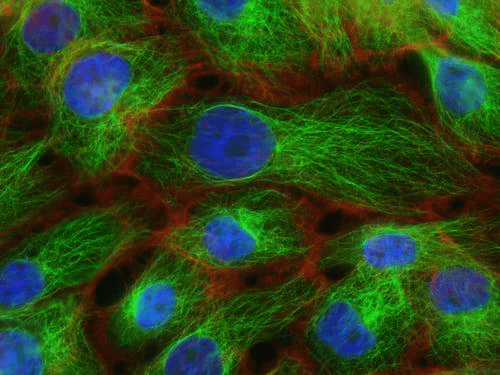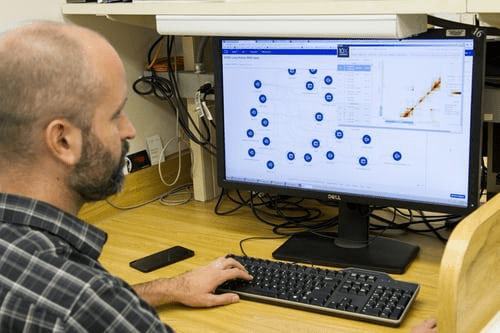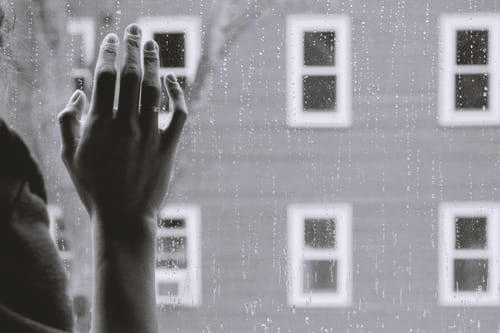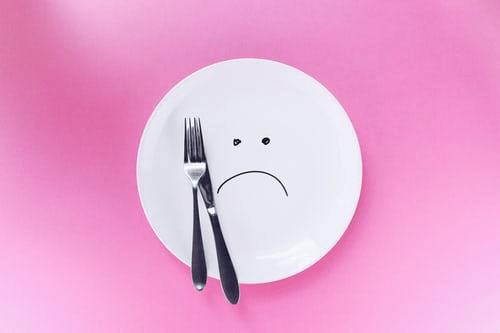Why Some People Are More Prone To Depression Than Others

“I am depressed”, “I feel depressed”, “I think I have depression” are the phrases that I have been listening to many people. The said depression-related phrases got me to think more about depression… questions like, “Why do some people experience depression while others don’t even when the circumstances they face are almost the same”.
After a lot of research, I figured out why some people are more prone to depression, meanwhile, others are not. However, the researchers and psychologists are still researching more regarding the causes of depression. Research shows that chemical and physical differences developed from the environmental and social risk factors.
Depression is said to be really complex because due to different personalities and thinking processes, it becomes quite a challenging situation for psychologists to understand the exact reason. Understanding the main reason and factor related to depression can really prevent other treatment options. In this blog, I have highlighted some of the reasons why some people are more prone to depression.
Reasons Why Some People Are Vulnerable Towards Depression
Biological Factors
Below mentioned are the biological factors that may influence depression in some people.
1. Genetics

Studies show that genetics also plays a role in depression. For example, people who have family members with past depression are more likely to become depressed. At the same time studies show that having a family history of depression does not mean that you will have depression your lifetime. But there are some of the factors along with circumstances that may influence the depression. In case you are having negative thoughts, you can check these helpline numbers.
2. Brain Chemistry

Although studies do not show any relation of brain chemistry with depression, some of the theories have mentioned the connection of neurotransmitters which can be the reason for depression. Meanwhile, some of the researches show that due to depression brain activity slows down. Or maybe this relation can go vice-versa as well.
Other studies show that medication maintains the working of neurotransmitters which is still under research. Therefore, due to various conflicts the relation between brain chemistry and depression.
3. Hormones
Hormonal imbalance in the body can also lead to depression. Like, the hormonal changes in the body due to pregnancy, menstrual cycle, and menopause can all lead to depression. The reports of the US show that 1 in 9 women experiences postpartum depression. Moreover, there is a probability that people with thyroid are likely to have symptoms of depression. Studies show that people with low functioning thyroid are likely to experience fewer symptoms of depression and anxiety. Meanwhile, people with over-functioning thyroid experiences more depression and anxiety due to hormonal imbalance.
4. Prolonged Illness and Chronic Pain

People who live with chronic disorders and pain like type 2 diabetes, sclerosis, and migraines experience more symptoms of depression because chronic illness and pain bring more biochemical changes in the body which leads to depression. Depression in people with chronic disorders is related to less quality of life, prolonged pain, and reduced functioning.
Additionally, some studies show that people with a mental disorder are likely to develop more disorders related to health. This is why; there is a need for a certified mental health provider while dealing with depression. Moral support is not enough.
Environmental Factors
Below mentioned are the environmental factors related to depression.
1. Abuse and Trauma

Studies show that early childhood abuse and trauma leads to depression in adulthood. Such trauma and abuse develop chronic physical and mental pain inside the body which causes depression.
There are three types of Adverse Childhood Experiences (ACEs):
- Abuse: Sexual, Emotional, and Physical
- Neglect: Emotional and Physical
- House Dysfunction: Divorce, domestic violence, substance use, the early demise of parents or loved ones
The mental health provider scores the patient accordingly. Having all the ACEs means a higher risk of depression. Studies show that child abuse damages the brain physically as well as mentally due to damage in connection structure. Also, children with more trauma experience more stress in adulthood.
2. Poverty
Studies show that around 64% of American adults suffer stress due to less money income. People who live in poverty are likely to experience depression twice in a lifetime. Not only even poverty, people who have income above the poverty level experience the same issue due to less quality of life. Additionally, the research shows that due to less social support and services, it becomes hard for people with poverty to get the appropriate help and treatment. Although, there are various free programs available in countries for people with mental illness and poverty.
3. Environmental Exposures
Some people do not like changes, specifically in weather, due to adverse conditions of weather, people experience seasonal affective disorder twice a year which leads to depression if not appropriately treated. Read more about, Seasonal Affective Disorder.
Additionally, more studies related to environmental exposures show that excess pollution and noise in metro cities are also the reason of depression. Moreover, teenagers who grew up with poor air quality are likely to develop more depressive symptoms and other physical disorders.
Social Factors
Below mentioned are the social factors that are related to the development of depression in some people.
1. Conflict and Stress

Getting married, losing a job, getting divorced or conflicts in relationships causes stress. Stress increases our Cortisol level which alleviates pain and chronic illness and can lead to depression. The major reason for depression in terms of stress is over-working schedules and fear of losing a
job. Moreover, poor working environment and office bullying can also lead to depression specifically when folks and higher management are not at all supportive.
Even conflict in schools and colleges can cause depression. Online bullying, school bullying, college bullying, and office bullying is the most specific reason for depression in teenagers and adults.
Furthermore, not only teenagers and children experience stress, house working wives, and working moms also experience stress only high scale levels all over the world which leads to depression and other mental illnesses if chronic.
2. Social Media

Due to the trending social media addiction, researchers are still researching and studying the topic. The stated fact about using social media as an addiction is the major cause of depression in all age groups specifically teenagers. Studies show that online harassment and bullying trigger depressive symptoms. Additionally, not getting enough hype on social media platforms is also one of the major reasons for depression in teenagers.
Social media addiction means the reduction of real-life interaction and physical activities which results in social isolation and a sedentary lifestyle. Although the research is still going on but the main reason is stated less attention on social media, harassment, and bullying.
3. Grief

Prolonged grieving can lead to depression until the person who is grieving is ready to accept the loss and move forward in life. Moreover, researchers are working on clinical depression and the length of the grief. Furthermore, the studies show that prolonged grieving can also lead to triggers related to PTSD (Post-Traumatic Stress Disorder).
4. Personality

Low self-esteem, procrastination, being a perfectionist, neuroticism, pessimism personalities are related to a great probability towards developing depression and other mental health disorders like emotional eating, anxiety, and stress.
Researchers are still studying the different personality traits, due to constantly changing environment and trends, personalities are also changing which makes it harder for them to study depression in relation to personality.
Moreover, developing resilience is known to be the most effective method to prevent mental illness caused due to personality traits.
Lifestyle Factors
Below mentioned are the lifestyle factors which trigger depression in some people.
1. Substance Use

People take the help of substances like alcohol and drugs as a self-healing treatment. However, people while grieving never realize that alcohol and drugs act as poison for them as it alleviates depressive symptoms.
Moreover, there are some prescribed medications by medical professionals which also work like drugs for patients. The medication makes the patient addict which as a result causes depression in some of the people. When depression and substance use combines, it becomes difficult for the person to cope with the situation. Similarly, it becomes difficult for the mental health provider to treat appropriately.
2. Medications

Some of the medical professionals prescribe medications which develop symptoms of depression in person like statins, beta-blockers, Accutane, and interferon-alpha. Medications prescribed for sleeping disorders and mental illness can also worsen the depression in some. Therefore, everyone should buy FDA approved medication only with a black box warning sign.
3. Less Physical Activity and Improper Diet

Studies show that people with less physical activity and improper diet are also at great risk of developing depression. An improper diet affects microbes in the gut which trigger the symptoms of depression.
I hope you like this blog. For more such informational content related to mental wellness, follow Calm Sage on all social media platforms.
Thanks for reading!
Related Articles You May Like to Read:
How To Tell If Someone Is Faking Depression?
15 Most Common Cognitive Distortions For Anxiety And Depression
Is Depression Genetic or Environmental? Putting an End of the Debate





















